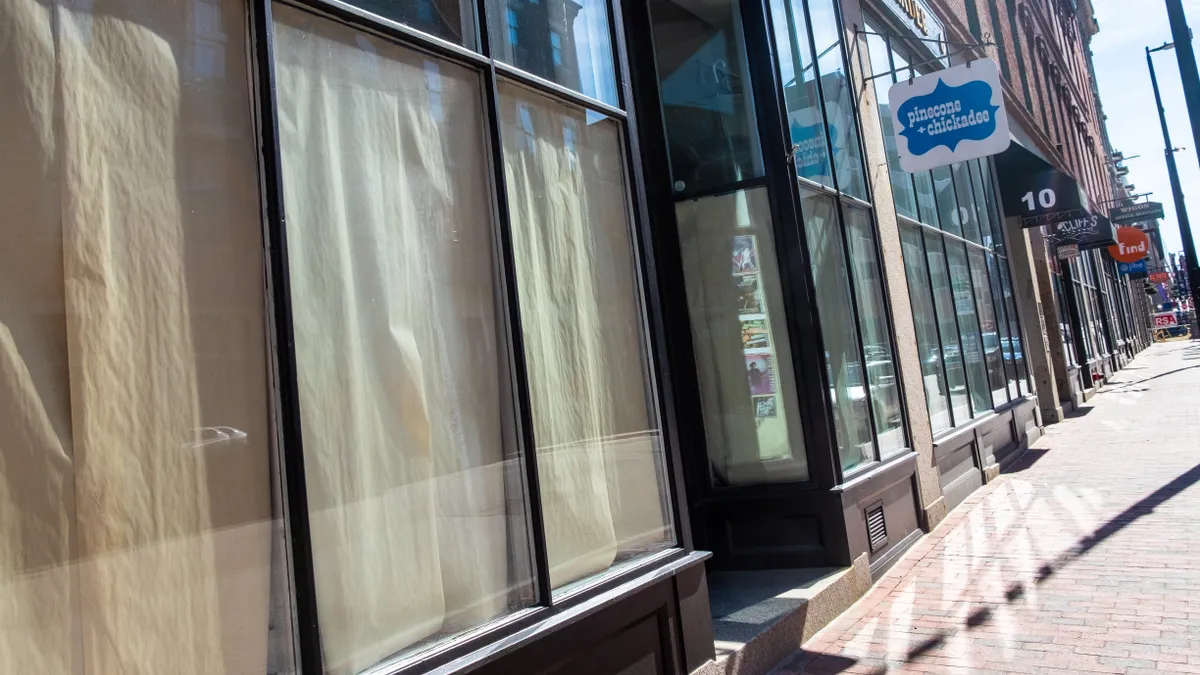Dive Brief:
-
With some factors finally tilting in their favor after a brutal pandemic year, more retailers are showing some signs of recovery in recent months, with 31% of small retailers still unable to pay their rent this month, according to an April rent report from Alignable, an online referral network for small businesses.
-
That's down from 50% in March, the highest for smaller retailers this year, according to the report. The picture is decidedly even worse for minority-owned businesses, as it has been: 53% couldn't pay their full rent in April, though it's an improvement from 67% in March.
-
The stress has meant closing up shop: Worldwide, more than 97% of the 2.4 million merchants that shuttered for good last year were retailers, restaurants and hospitality businesses with fewer than five locations, according to research from IHL Group.
Dive Insight:
The pandemic relief packages provided by the federal government last year and early this year had some provisions to support smaller businesses reeling from the pandemic. But the decision in most jurisdictions to allow "essential businesses" to remain open disproportionately hurt independent retailers, especially those outside Europe and North America that didn't receive such relief, according to IHL President Greg Buzek.
Some jurisdictions took more drastic measures than others, as when city officials in Portland, Maine, last year briefly forbade nonessential businesses of all sizes to conduct curbside, delivery or mail order, under threat of hefty fines and loss of their business license.
"While the pandemic has been challenging to companies of all size, it has been particularly devastating to the smallest companies worldwide," Buzek said in a statement. "As governments defined ‘essential vs non-essential' companies, they unwittingly oversaw the largest transfer of retail wealth ever from smaller to larger companies."
The COVID-19 era has been rough for retailers with brick-and-mortar stores, especially the many smaller businesses that had to scramble to launch services like e-commerce and curbside pickup. But many are finding their landlords, eager to retain tenants, to be more amenable to rent breaks and other lease concessions. If they can hang on, smaller retailers may also find plummeting rents in cities for both commercial and residential properties, which could signal a revival as coveted Gen Z consumers move in, according to recent research from Placer.ai.















